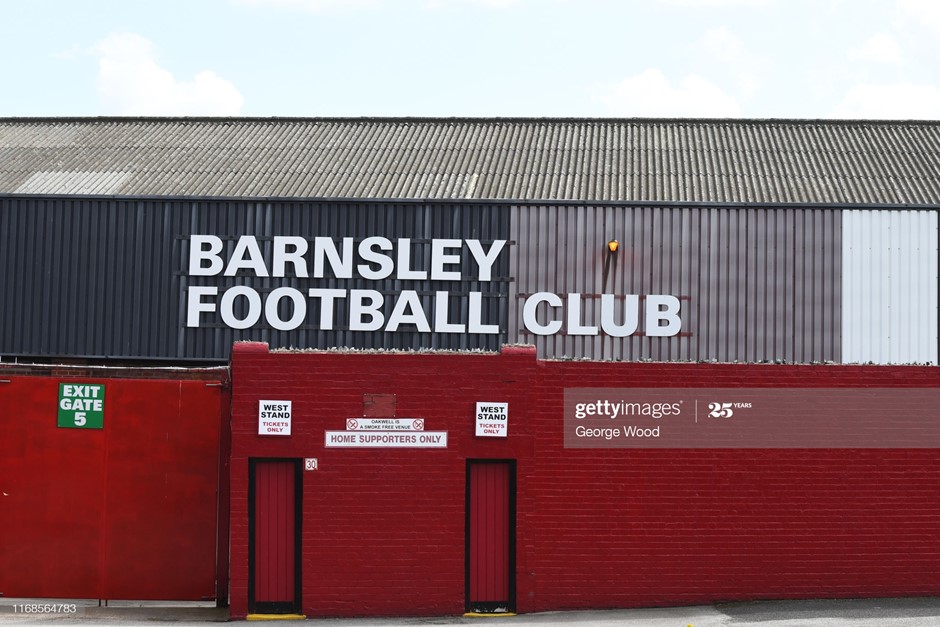On Monday night, the Daily Mail broke the troubling news that Championship side Barnsley have held talks with other EFL clubs about a move away from their Oakwell home.
The stadium, where the Tykes have played for 132 years, is co-owned by the local council and former club owners, the Cryne family, while current majority owners Chien Lee and Paul Conway want it in their possession.
Reports that Barnsley have been in touch with other clubs about sharing their ground and moving away from Oakwell signal a severe escalation in a long-running conflict. More generally, it is also just the latest warning of the perils of separating a football club from its ground.
Barnsley battles
In December 2017, the Cryne family sold an 80% stake in Barnsley to Hong-Kong-based consortium BFC Investment Company, led by Chinese businessman Lee and US colleague Conway and also including Billy Beane, of ‘Moneyball’ fame.
The Cryne family retained 20% of the club but crucially did not hand over their 50% share of Oakwell. (The other half, as before, was held by the local council.) The initial deal did include an option to purchase that share though, which the club attempted to exercise in January 2020.
But since then, tensions have mounted. The Crynes have not handed over their share yet, claiming last month that they were still owed £2.75m from the sale of the club, and were preparing legal action against Lee and Conway. The club claimed in response that the Crynes told them another party had their own option to purchase Oakwell, dating back to before 2017.
As well as the setbacks in their attempts to purchase the Cryne family’s stake, they are also reported to be frustrated at the blocking of a previous attempt to buy the council’s share of the stadium. The council claim that no negotiations have taken place, but have pledged to do everything they can to keep the club in the town.
With the owners exasperated by both battles, it appears they are polishing the nuclear button. It still seems unlikely to be pressed though, as they will hope this move puts pressure on the Crynes and the council, both of whom do have the club at heart. The club moving would benefit nobody, and fans will desperately hope there is progress to avoid the unthinkable from actually happening.
Stadium sagas
The saga is only the latest to demonstrate the difficulties when a club or its owner doesn’t own the football ground it plays at.
Of course, the local council having some or all of the freehold is nothing new and can be beneficial, ensuring it remains for the club and community and guaranteeing its long-term future and security against some of the more malicious forces in football.
It does come with some risks though, as Coventry City found out. The council stepped in to fund the construction of the Ricoh Arena, but when rugby union side Wasps moved in and later decided to buy the ground there was conflict between the two clubs. The Sky Blues have twice decided to move and currently play in Birmingham.
The real problems come when a ground is separated from its club and community altogether. Never has this been seen more dangerously than at Bury; when the club was expelled from the EFL last year, the true owners of Gigg Lane weren’t even known, after former owner Stewart Day had used the ground as security against loans for his other business and the lenders had in turn mortgaged it to a mysterious company in Malta.
Clubs have been made homeless in the past after their grounds had been sold off, such as Brighton and Hove Albion. In 1997 they were forced out of their historic Goldstone Ground after their owners sold it to pay debts, and they spent the next two years sharing with Gillingham and the following dozen playing at an athletics stadium.
And there should be concern at the recent trend for clubs to sell their stadiums to their owners to comply with financial fair play rules. While this is perfectly legal and the owners have no malicious intentions, this situation has the potential to cause big problems later if the club is sold on and the ground is not included as part of the sale.
Ultimately, the current lack of regulation means that club owners are trusted to act responsibly with their ground, with the best interests of the club, its supporters and the community. It is essential that they do because it is more than a football club’s biggest asset; it is a special, unique home.






































